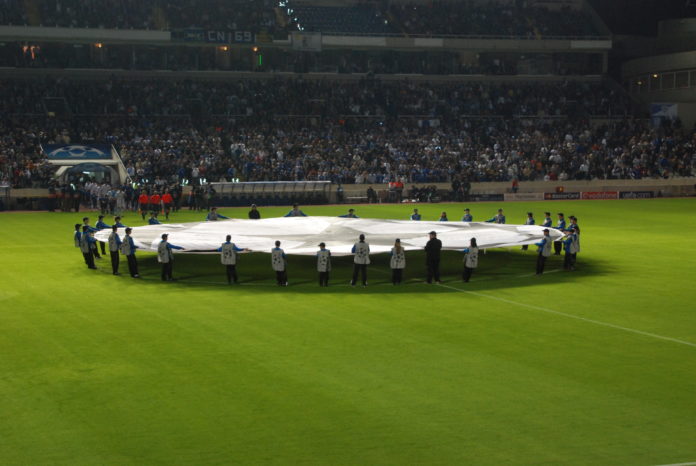
The FIFA Regulations
FIFA has issued detailed regulations requiring clubs to release players for international duty on demand, which are set out at Annex 1 of the FIFA Regulation on the Status and Transfer of Players (the Regulations). It sees the Regulations as vital to ensure that international football is not undermined by rich clubs buying up players from poorer nations and then refusing to release them for national service.
Article 3 of the Regulations states: “every player registered with a club is obliged to respond affirmatively when called up by the association …”.
Article 5 states: “Unless otherwise agreed by the relevant association, [a player is] not entitled to play for the club… during the period for which he should have been released. This restriction shall be prolonged by five days in the event that the player, for whatsoever reason, did not wish to or was unable to comply with the call-up”.
And Article 6 states: “If a club refuses to release a player… [FIFA may request] the association to which the club belongs to declare any match(es) in which the player took part to have been lost by the club concerned”.
Africa Cup of Nations
LFC signed Joel Matip in February 2016, with effect from July 2016, when his contract with Schalke 04 expired.
Matip played twice for Cameroon in the 2014 FIFA World Cup Final, scoring against host team Brazil. But he did not play for Cameroon again after September 2015, and when FECAFOOT included him in its squad for the Africa Cup of Nations (played in Gabon from 14 January to 5 February 2017) he said that he had retired from international football in 2015.
FECAFOOT rejected this, and it was reported that Matip had not informed FECAFOOT in writing of that retirement. This was a problem because Article 3 of FIFA’s Commentary on the Regulations for Status and Transfer of Players states: “…a player basically has to comply with this summons. Should he wish not to be called up … he must inform the association of which he is a national, in writing, of his intention before being called up”.
Therefore, rather than confirm to FIFA that Matip was eligible to play for LFC during the Africa Cup of Nations, FECAFOOT reportedly complained to FIFA that Matip was in breach of the Regulations. LFC stood behind the player’s claim that he had retired from international football and so should be eligible to play for the club notwithstanding his call-up for the tournament, but without the consent of FECAFOOT, LFC ran the risk that any matches in which he played would be declared forfeit. This was obviously a serious problem for LFC, given their desire for a top four finish to secure qualification for next year’s Champions League competition, as well as the more immediate revenues gains that victories in the Premier League and FA Cup bring.[1]
The result was Matip not playing for the Cameroonian team in the Africa Cup of Nations or for LFC while the dispute continued. Matip missed two Premier League matches and one FA Cup match for this reason. Allan Nyom, of West Bromwich Albion, also missed matches for the same reason. In contrast, Ajax Amsterdam did risk fielding one of their players who had rejected the call-up by FECAFOOT, Andre Onana. This highlights the confusion that clubs currently experience with international call-ups.
Resolution
Eventually, FIFA confirmed that Matip’s retirement was valid and that he could therefore be selected for LFC without breaching the Regulations. It is not known what evidence was provided that enabled it to make that ruling. Instead, all we know is that the dispute has taken over a month to resolve, and that resolution has not provided any further clarity for clubs and national associations wishing to avoid similar problems moving forward.
Lessons to learn
Within modern football, domestic careers create the bulk of a player’s income. It seems the rewards of the domestic leagues are beginning to override the patriotic draw of international glory, and it’s likely that this issue will continue to worsen whilst the disparity continues.
The lesson to be learned for clubs is that administrative failings can be costly both competitively and financially. On the other hand, FIFA may need to examine its processes to provide clarity and ensure clubs, associations and players know of the requirements and the dispute resolution process. The time-delays are a concern as it seems this particular dispute could have been dealt with much more quickly. FIFA may need to consider the gap in knowledge around the Regulations that led to the impasse in the first place. Neither Matip nor Nyom were selected in Cameroon’s final squad and yet their clubs were unable to obtain confirmatory consent from FECAFOOT to allow them to play domestically. It should perhaps consider this gap and amend the rules to limit when a player can be prevented from playing domestically following selection for the national team.
[1] Last year the Premier League added £1,236,083 prize money per position in the table, with positions usually separated by one or two points. Meanwhile, last year’s FA Cup winner earned £1.8 million in prize money, plus TV revenues and gate receipts. Players’ cost-per-game ratio when they are benched is also a factor. Missing games results in a distortion in players’ cost-per-game ratio, which can affect the value a club gets from any fee paid for a given player. A player’s wages are paid regardless of playing time. Clubs have commercial interest in being able to select their players when required.









